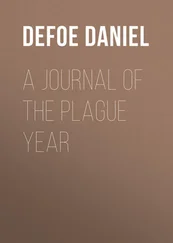The lecture was unexpectedly pleasant, but she’d reached her half-life of fun. The party upstairs wouldn’t have exceeded the delight she’d have unpacking her tightly crammed suitcase and slipping on her pyjamas. If only I didn’t have the wrong bag. Back in the hotel, she wouldn’t even be able to run her toothbrush across her teeth.
Grossman appeared at the entrance carrying a bag of ice under each arm. “Oh good, I was worried you’d left,” she said to Tso. “I’ve set everything up.”
“Do you always show up late to your own parties?” Tso asked. She followed her up the creaky steps.
“Who else is going to get ice?” she replied.
“I met your dad,” Tso said as they reached the landing. The door had been locked, and Grossman rapped on it and waited patiently to be let back into her own apartment. “He mentioned someone named Far-head?”
“Farhad’s our tenant,” she said, looking across the landing to another door. “Dad doesn’t like him, mainly because he’s Persian. Plus he’s rude and is always late with rent, so Dad didn’t totally miss the mark. He didn’t even have references when he applied. I guess I shouldn’t have taken him on.”
Tso looked at Farhad’s door. On it a piece of loose-leaf paper was stapled that read: Let this be over by nine. It was already nine-thirty.
“Why did you rent to him in the first place?”
“No one else would,” she said. It sounded like she’d heard this question before.
A party guest let them into Grossman’s apartment, which was lit entirely by what seemed to be an assortment of scented candles. Tso offered her shoes to the pile that grew by the door. Grossman threw her jacket on an air mattress in her bedroom. The apartment was ample but half-empty. Tso saw a home full of missing objects: a space where an armchair might have been placed, a vacancy on the kitchen counter from a displaced coffee maker. The heavy and severe curtains belonged to a night person.
At the kitchen table, Tso loaded her plate from a mezze platter and filled her plastic glass from a box of red wine. The Best of Leonard Cohen was playing on iPod speakers. In the living room, the dozen or so death enthusiasts sat in a circle on the floor, their eyes closed.
Tso thought they were conducting a séance, but it was a game of Werewolf that had just started. She’d played this game before; it was called Mafia when she participated, but it was essentially the same. The game’s narrator asked the two werewolves to open their eyes. Next they pointed to the villager they wanted to “kill.” Then the village doctor opened her eyes and tried to guess the next victim and save them. She failed. When this was done, all the participants were asked to open their eyes. “Dawn has broken,” the narrator said. “And there has been another casualty in the village.” Everyone else had to guess who the werewolves were.
Accusations, misdirection, and disavowals ensued. People have fled their homelands to escape such conditions, Tso thought. Anything can be passed off as fun and every nightmare must be play-acted afterward. Tso only editorialized when she was in a bad mood.
“I would have sat out this game even if they’d asked me to play. There’s too much tension.” Tso hadn’t noticed Grossman standing next to her. She held a glass of punch that was filled to the top with the ice that she had brought to her own party. The way she held the glass, at chest level, seemed to suggest she was holding it for someone.
“Is it hard to get a cab from here?” Tso asked. “I’m feeling the jetlag.”
Grossman said she would call one for her. “But first I need to tell you the rest of my story.”
She grabbed Tso’s upper arm and led her to an alcove with a computer. It was a quieter place to relate her woes, as “Suzanne” wafted in the background.
Tso was not particularly forthright about her own feelings. Friends described her default expression as haughty and disdainful, and yet people always confided in her. First, she asked questions (in order to avoid talking about herself). And she never passed judgement; to offer approval or criticism felt like overreach. For those who had guilty consciences, like a group of grave robbers she’d once interviewed in Arizona, she granted absolution. Their unhappiness was externalized into a paper ball, and she was the waste basket.
This was Grossman’s story: She had met Janet for the first time twenty-five years ago, when Janet was still in middle-school. “I was her camp counsellor,” she said. “I made sure she went to bed on time and was wearing enough sunscreen.” Grossman had recently come out and wore T-shirts that celebrated her newly acknowledged sexuality: one had a rainbow flag on it, another featured an illustration of Gertrude Stein. The morning after Parents Welcome Day, she was called in by the camp administrator, who suggested she make wiser sartorial choices. In a fury, Grossman quit.
When she met Janet in a bar nearly a decade later, she neither recognized nor remembered her—that came later. What drew Grossman to Janet was her strong nose, dark unruly eyebrows, and a resting downturned mouth—features that would age well. “She looked like the younger version of a portrait that might hang in a haunted house,” she said. “She seemed mature beyond her age, but she was being herself.” They had, Grossman admitted, a blisteringly sexual relationship in their first couple of months. “It was hot,” she said. “We were two people used to getting sex twice in one week and then living off the crumbs of those memories for another eight months until our next opportunity.” They bounced between hostels and beachside campsites in Mexico for two months. Then Janet fell ill with Lyme disease, and they grew closer during her recovery. Grossman loved caring for her. She even considered training as a nurse, but she didn’t want to go back to school.
Janet, however, still wanted to learn. She was a painter, and Grossman supported her through her MFA. She deferred her own creative dreams for her wage-work in tourism. Grossman’s father needed to be cared for, so they arranged to live with him. This saved them enough money that Janet no longer had to toil as a teaching assistant. By watching YouTube videos, Grossman learned how to fix leaky faucets and replace toilet bowl stoppers. After the corner store downstairs was closed, Janet used it briefly as a studio space, but the light was poor, and it was like trying to see to the bottom of a bowl of chicken broth.
At the beginning of the year, Janet’s career had broken through to find an audience. After nearly two decades of painting, she won a major award, was profiled in an influential glossy magazine, and found a New York dealer. It all came at once. “In some ways, she no longer needed me to care for her. If we were eating out, I didn’t have to pick up the tab,” Grossman told Tso. “But then there would be a deadline for a big show, and the dealer was a shark who would drop her if she flopped. Her anxiety levels peaked. So she needed me more. However, now she resented it. One time, the day before one of her openings, we had a big fight because I wanted to wear the same suit I’d worn for her last show. When the exhibition turned out be a hit, she apologized. She moved out a few days later.”
Unlike most of her contemporaries who explored mixed media and abstraction, Janet was a figurative painter. Her watercolours were inspired by both comic books and Mexican folk art, and her subjects were entirely young women—friends and family members in outdoor landscapes inspired by trips along the province’s north coast. Grossman appeared in a number of Janet’s paintings, but only as a stylized version of herself. She was painted in the Gertrude Stein T-shirt, but not in the way she looked when she was a camp counsellor. “My hair is asymmetrical in those portraits, but I didn’t have that hairdo until years later,” Grossman said. “Plus, I’m the only one who is fully clothed. Everyone else is topless or pant-less. It’s like she doesn’t want to imagine me naked. Either that, or she doesn’t want to show the world the woman who she saw naked.”
Читать дальше












